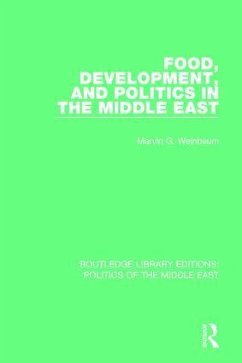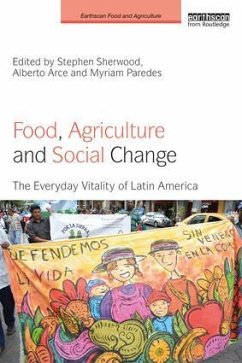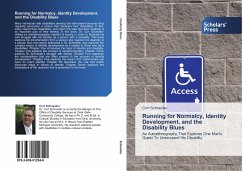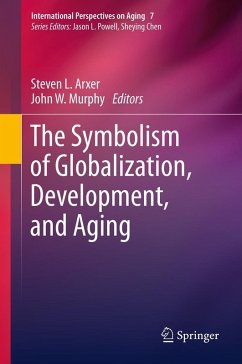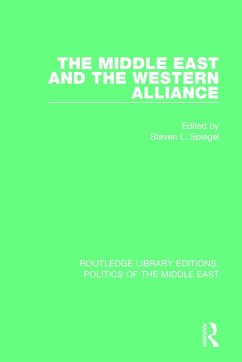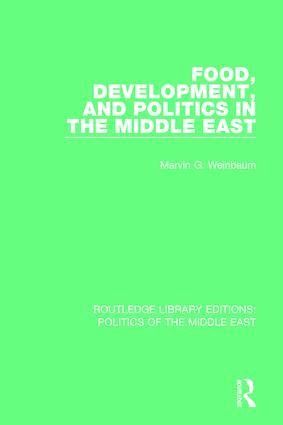
Food, Development, and Politics in the Middle East
Versandkostenfrei!
Versandfertig in 1-2 Wochen
112,99 €
inkl. MwSt.
Weitere Ausgaben:

PAYBACK Punkte
56 °P sammeln!
As the reality of a food deficit emerged in the Middle East, rural society and the agricultural sector - once viewed as peripheral to national development - swiftly rose up the policy agendas of nearly every Middle East country. This book, first published in 1982, looks at the complex interrelationships of food production, development schemes and politics in those countries. Dr Weinbaum considers the origins, nature, scope and political dimensions of the potential food shortfall and explores how food deficits could lead to changed international relations among states in the Middle East. He spe...
As the reality of a food deficit emerged in the Middle East, rural society and the agricultural sector - once viewed as peripheral to national development - swiftly rose up the policy agendas of nearly every Middle East country. This book, first published in 1982, looks at the complex interrelationships of food production, development schemes and politics in those countries. Dr Weinbaum considers the origins, nature, scope and political dimensions of the potential food shortfall and explores how food deficits could lead to changed international relations among states in the Middle East. He specifically examines the physical and technological limitations to increased food production, then assesses the major social, economic and political hurdles in the way of agricultural development, the effects of - and pressures for - agrarian reform, the bureaucratic policymaking process, and the domestic impact of foreign assistance policies. He concludes with an examination of the linkage between food supply availability and political stability.




